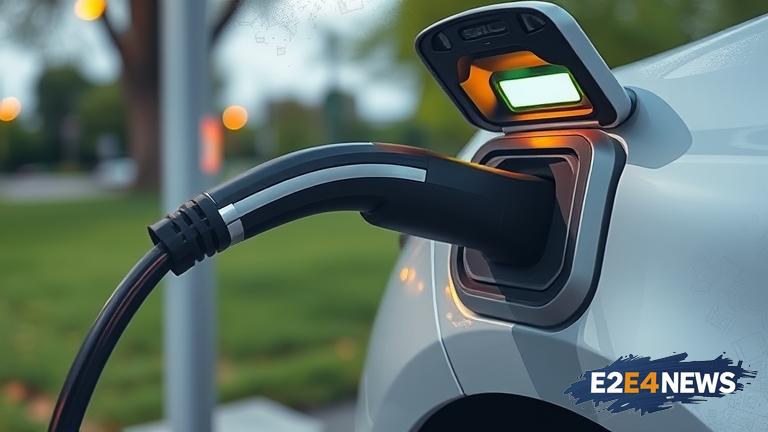The Dane County area in Wisconsin has been selected to receive federal funding for the installation of electric vehicle (EV) charging infrastructure. This initiative aims to promote the adoption of electric vehicles and reduce greenhouse gas emissions in the region. However, despite the funding, the project has encountered several challenges that are hindering its progress. One of the main hurdles is the lack of standardization in EV charging systems, which is causing compatibility issues and making it difficult for drivers to charge their vehicles. Additionally, the high cost of installing and maintaining EV charging stations is also a significant challenge. The funding provided by the federal government is expected to cover a significant portion of the costs, but it is still unclear whether it will be enough to overcome the existing hurdles. The project is part of a larger effort to reduce carbon emissions and promote sustainable transportation in the region. The EV charging infrastructure is expected to play a crucial role in supporting the growing number of electric vehicles on the road. However, the lack of public awareness and education about the benefits of EVs is also a challenge that needs to be addressed. Furthermore, the project requires collaboration and coordination between multiple stakeholders, including government agencies, private companies, and community organizations. The federal funding is expected to be used to install a network of EV charging stations along highways and in public parking areas. The charging stations will be designed to be fast and convenient, allowing drivers to charge their vehicles quickly and easily. The project is also expected to create jobs and stimulate local economic growth. However, the timeline for the project is still uncertain, and it is unclear when the EV charging infrastructure will be fully operational. The project’s success will depend on the ability of the stakeholders to overcome the existing challenges and work together to achieve the common goal of promoting sustainable transportation. The EV charging infrastructure is expected to have a positive impact on the environment, reducing greenhouse gas emissions and promoting clean air. The project is also expected to improve public health by reducing air pollution. The federal funding is a significant step towards achieving these goals, but it is only the first step in a long process. The project requires ongoing support and investment to ensure its success. The EV charging infrastructure is expected to be a key component of a sustainable transportation system, and its success will depend on the ability of the stakeholders to work together to overcome the existing challenges. The project is a significant opportunity for the region to promote sustainable transportation and reduce its carbon footprint. The federal funding is a major boost to the project, and it is expected to have a positive impact on the environment and public health. The project’s success will depend on the ability of the stakeholders to collaborate and work together to achieve the common goal of promoting sustainable transportation. The EV charging infrastructure is expected to play a crucial role in supporting the growing number of electric vehicles on the road, and its success will depend on the ability of the stakeholders to overcome the existing challenges and work together to achieve the common goal. The project is a significant step towards achieving a sustainable transportation system, and its success will have a positive impact on the environment and public health. The federal funding is a major boost to the project, and it is expected to have a positive impact on the environment and public health. The project requires ongoing support and investment to ensure its success, and the stakeholders must work together to overcome the existing challenges and achieve the common goal of promoting sustainable transportation.
